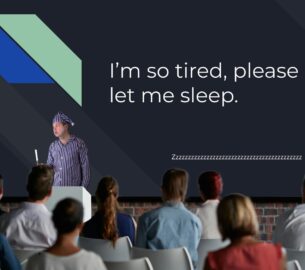
“Yes, you may have mastered C and C++, but can you see beyond the void?” asked Coren.
Photo by Jack Yang
After laying in a fetal position, crying, and rocking back and forth for nearly three days, local computer science student Jamie Coren walked out of his room, finally untroubled by the comings and goings of day-to-day life. “It feels like a weight has been lifted off of my shoulders,” Coren said in a soft tone. “I know this sounds cliché, but I genuinely feel like I’m a new man. For the first time in years, my head is clear, my muscles are loose, and I feel like I can take on anything. Pandemic? Wildfires? Political instability? Bring it on! I’ve reached nirvana! I’ll cure COVID, put out the fires, and fix America in one fell swoop!”
His CSE 5A professor, Leon Modesto, noticed Coren’s change in attitude right away. “I run a very tight ship, even over Zoom,” Professor Modesto stated. “I start lectures at 8 a.m. sharp, as timed by my diamond-encrusted oystersteel and white gold Rolex, which I was able to purchase using mandatory textbook sales. Regardless, students normally come into class looking like the living dead. All students should look deadpan in the mornings, but when I started lecturing, I noticed that Jamie was bright-eyed, enthusiastic, and eager to learn – which I thought was impossible. I specifically designed my course to up textbook sales and crush students’ hopes and dreams, so the fact that Jamie got through an entire hour of soul-crushing monotony was a failure on my part.”
“I thought Jamie was acting weird too,” said Oliver Sevia, a classmate in CSE 5A. “Like, I thought the whole ‘stress-free’ and ‘life is worth it’ attitude was just some kinda joke. But from a computing standpoint, it makes sense that trying to process too much stress would eventually loop around and negate that very same stress. I’m gonna be oversimplifying, but for the purposes of argument, let’s assume the variable ‘stress’ is stored as a number, and that humans are 64-bit operating machines. That means that we have 18,446,744,073,709,551,615 usable bits of information at our disposal, and every time we’re stressed, some of those bits go to processing that stress. Too much stress, and we don’t have enough bits to process any of it, so we just kinda loop back around to zero stress. Given the state of the world, it wouldn’t necessarily be impossible, though. Then again, this is also assuming that humans are machines, which we aren’t. Unless we’re living in a simulation. In which case… oh my God.” After saying this, Sevia quickly turned pale and ran out of the room. Further attempts to reach out to him for comment were unsuccessful.
In response to Coren’s stress-free attitude and life, several other classmates have made it their goals to experience a stress integer overflow as well. Some have taken on full 22-unit loads, full-time jobs, and no less than three private student loans, but the effectiveness of these methods is yet to be seen. Coren, meanwhile, has started to take classes in a hammock outside while sipping piña coladas, blissfully ignorant of the “hazardous” air quality rating in his hometown of Seattle.
Stephen Lightfoot is Editor in Chief of The MQ.









